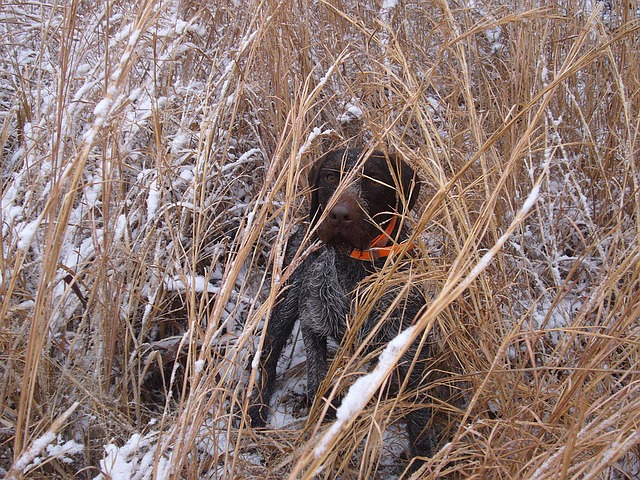The Dogs First Hunt
The final step of your dog’s retriever training is the first hunt. However, there are many mistakes that can – and commonly are – made during this important occasion. Here, tips for your dog’s first hunt are discussed.
One of the easiest mistakes to make is to hunt your dog too early. Oftentimes, hunters find that their dogs are retrieving perfectly in the backyard and, given the dog’s lineage and price tag, expect the animal to replicate this behavior prematurely. Instead of taking your dog directly to a new situation, such as a duck blind, go to a basic gun dog course when your pet is 12 – 14 months old in order to reinforce proper behaviors with simple commands.
Remember that there are four stages of training: yard work, field work, transition work, and the first hunt. While many retrievers master yard and field work quickly, transition work is frequently lacking before the first hunt takes place. Transition work entails practicing all types of hunting situations your dog might encounter during that first experience. Here, hunters should anticipate problems in order to better hone their dogs’ skills.
For instance, transition work can include:
- Exposing your dog to decoys
- Teaching your dog not to pick up decoys
- Retrieving dummies from amongst decoys
- Loading your dog in and out of your boat
- Practicing dummy retrieves from the boat
- Retrieving from the boat through decoys
- Conditioning your dog to goose/duck calls
- Conditioning your dog to shooting overhead
Even after your dog’s first hunt, it is important to continue with transition work any time you introduce your dog to a brand new hunting scenario. Ultimately, the best way to have your dog prepared for the first hunt is to think about the finished product when you start your initial training. By paying close attention to everything your dog might encounter and properly conditioning him or her to these scenarios, your dog’s first hunt will be a success.

